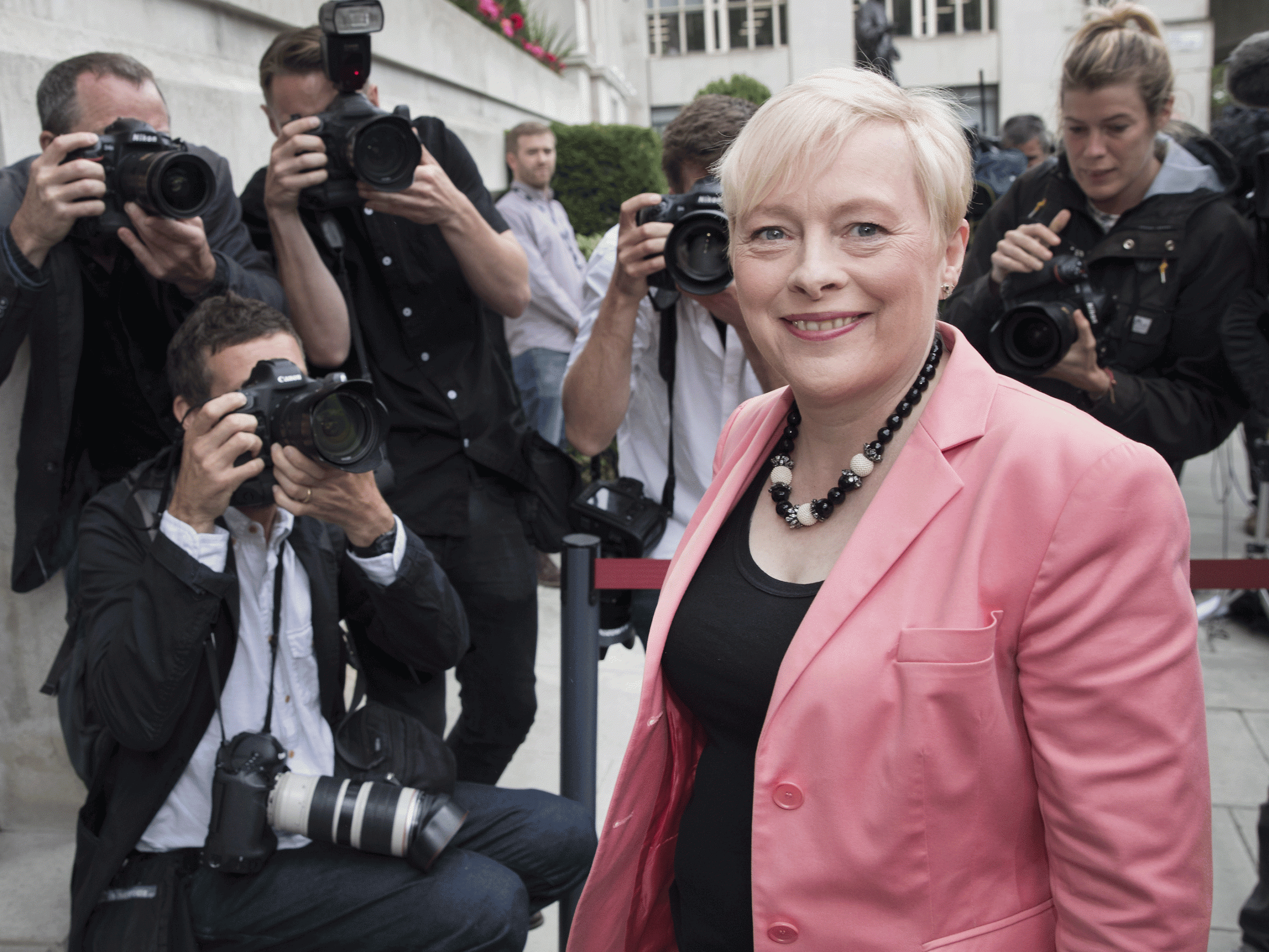Against Owen Smith, Jeremy Corbyn's victory was inevitable – but what if he'd fought Angela Eagle?
Eagle would have run as a northern, working-class, female, gay candidate against an incumbent who was none of those things


The big “what if” of the Labour leadership election is whether Angela Eagle would have done better than Owen Smith. I think she would have done. She may not have won, but her campaign-that-never-was offers some clues to those who want to challenge Jeremy Corbyn more effectively next time, whenever that may be (spoiler: next year).
In July, Eagle had the courage to put herself forward first. She held back from declaring while negotiations went on with the leader to see if he wanted to step down voluntarily. It seemed that he didn’t, and those around him were even more fierce on his behalf that he was, in the unintentionally ambiguous phrase of the moment, “going nowhere”.
Then there were the negotiations with Smith, which ended up in the agreement that whichever of them could sign up the most nominations from their fellow MPs would stand as the single candidate against Corbyn. At the time, this deal seemed to make sense. It meant that Corbyn’s opponents would not spend their energy attacking each other. In hindsight, however, it was probably a mistake. A broader campaign might have been more interesting, and might have made Corbyn seem like one choice among many rather than a newly elected leader facing a concerted effort by recalcitrant MPs refusing to accept his mandate.
But the important point is that Eagle would have won more than 38 per cent of the vote, whether running as a single candidate or as one of three, after counting transferred preference votes.

She had a bit more national standing than Smith to start with. She had been Corbyn’s parliamentary deputy, standing in for him against George Osborne at Prime Minister’s Questions when David Cameron was out of the country. She was brave to challenge Corbyn first, while Smith waited. Though they were both fearless in the end – Smith must have known that his campaign had little prospect of success.
But there was still a difference. Eagle was tearful when she resigned from the Shadow Cabinet. She came across as someone who had tried to make it work and was upset, for the Labour Party’s sake, that the attempt had failed. Smith’s bravery was of a different kind, that of someone untroubled by self-doubt.
If Eagle had run, her campaign would have been very different from Smith’s. She would have run as a northern, working-class, female, gay candidate against an incumbent who was none of those things. Instead of Smith’s rather obviously calculated strategy, of running as a more competent vehicle for Corbyn’s politics, she would have run as a personality in her own right. This is important because Corbyn’s appeal is not just his policies – just pause to see if you can remember any of them – but his identity as an authentic and principled socialist. Some of his supporters were disillusioned by his failure to present himself as capable and dynamic, and others were offended by his evident scepticism about the campaign to remain in the EU.
Smith’s attempt to brand himself as the competent pro-EU left-winger was never likely to succeed, partly because it was so transparent, and a huge part of Corbyn’s appeal is his apparent lack of calculation and spin. That is why he said “sadly for everyone it’s the same Jeremy Corbyn” who would be leader if he won, rejecting the idea that he would change to bring the party together. Corbyn’s opponents might have groaned, but they are not well placed to understand the appeal of his character – always consistent with itself, unlike Smith, who has come across as a politician who has adjusted his positions to suit his purposes.
So I think Eagle would have done better, fighting as someone who not only patently believes in the Labour Party but who would have embodied its pitch to the very constituencies to which Corbyn’s supporters expect to appeal. If the candidate is the message, her message would have been as powerful as Corbyn’s.
Unfortunately the timing of the Chilcot report could not have been worse for her. She voted for the Iraq war as an MP in 2003; Smith opposed it as a special adviser. She announced she was a candidate five days after Chilcot was published and then had eight days to try to sign up more MPs than Smith. Those MPs bought into the Smith strategy of taking on Corbyn on his policies – opposition to the Iraq war being hugely important to his base – rather than the implied Eagle approach of taking on Corbyn on the politics of identity.
So there we are. Trying to fight Corbyn on competence wasn’t a terrible idea. Thirty-eight per cent is large minority. Many people who voted for Corbyn last year have become disillusioned. I have only anecdotal evidence, because they are hard to poll, but some of them voted for him reluctantly again because they were uninspired by Smith. Others dropped out or voted for Smith, but were then replaced by a new influx of Corbyn supporters.
Now Labour optimists suggest there will be a period of calm, as Corbyn and some of his parliamentary colleagues pretend to try to work together, while others of his opponents try to promote what I’m told will be a “ferment of ideas”. This is an ingenious euphemism for a beauty contest to choose the next candidate who will be put up against Corbyn.
Next time, though, Corbyn’s opponents need to learn the lessons of this contest: they need a candidate who comes across as standing for something more than his or her own ambition.
Join our commenting forum
Join thought-provoking conversations, follow other Independent readers and see their replies
Comments
Bookmark popover
Removed from bookmarks